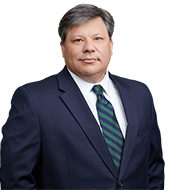Recent 11th Circuit Decision Is a Victory for Health Care Providers Challenging Insurer Reimbursement Decisions and a Reminder of the Importance of Carefully-Drafted Assignment of Benefits Clauses
The existence and scope of assignments of benefits from patients to health care providers continues to be critically important to a provider’s ability to challenge an insurer’s reimbursement decision under the Employee Retirement Income Security Act of 1974 (“ERISA”). While providers lack independent standing under the statute, which may be a provider’s only ability to challenge an insurer’s reimbursement decision in court, they frequently rely on an assignment of benefits (“AOB”) as a basis for derivative standing.
As payor-provider reimbursement litigation has increased, courts have closely analyzed the language of AOBs to determine whether they are sufficiently broad to confer derivative standing on providers. If the court finds that the AOB language is sufficient to confer derivative standing, the provider may assert claims against an insurer under ERISA. By contrast, if the AOB language is insufficient to confer derivative standing on the provider, the provider does not have the ability to challenge an insurer’s reimbursement decision under ERISA or otherwise.
In a February 4, 2016 Alert, for example, we reported on the district court’s opinion in BioHealth Medical Laboratories, Inc. v. Connecticut General Life Insurance Company [1]. The facts and procedural history of the case follow a pattern similar to other cases brought by providers against commercial payors. In that case, out-of-network laboratories (the “Laboratories”) performed blood and urine testing pursuant to plans both issued and administered by defendants (“Cigna”) and sought reimbursement for those services from Cigna. Cigna either denied or delayed payment and the Laboratories filed suit challenging Cigna’s conduct under ERISA, relying on AOBs that they had received from their patients. Cigna then moved to dismiss the Laboratories’ claims, claiming, among other things, that the AOBs did not provide the Laboratories with standing to recover benefits arising from self-funded plans (i.e., those administered by Cigna).
The district court agreed with Cigna and the Laboratories appealed that decision to the Eleventh Circuit Court of Appeals. In an August 14, 2017 unpublished opinion, the Court of Appeals vacated the portion of the district court’s decision relating to the Laboratories’ standing to recover benefits arising from self-funded plans and allowed those claims to proceed. Specifically, the Court of Appeals, like other courts interpreting assignments, focused on the plain language of the AOBs at issue and, in particular, their reference to “collateral sources.” The Court of Appeals determined that the Laboratories’ interpretation of that phrase — which, under Florida law, included self-funded plans — was plausible at this juncture and, at the very least, necessitated discovery into extrinsic evidence before the AOB could be definitively interpreted. Thus, the district court’s dismissal of the Laboratories’ claims relating to self-funded plans was premature.
On a broader level, the Court of Appeals also explained that interpreting the AOBs to include self-funded plans would not thwart ERISA’s purposes of protecting the interests of employees and their beneficiaries in employee benefit plans and uniformity in plan administration. Instead, the Court underscored that such an interpretation may further those purposes by enabling providers — who may be “better situated and financed” than patients themselves — to challenge insurer reimbursement decisions.
The Court of Appeals’ decision further underscores the importance of carefully drafting AOBs and is a timely reminder for providers to review the assignment language included on their patient intake forms. The existence and scope of AOBs will continue to be heavily litigated issues in provider disputes with payors and providers would be well-served to give attention to the issue now, before they find themselves involved in a reimbursement dispute with an insurer.
K&L Gates’ Health Care Revenue Recovery Solutions team can review your AOBs and other provider intake forms to help optimize your ability to receive proper reimbursement for your services. Contact any of the Alert’s authors for more information.
Note:
1. See BioHealth Medical Laboratories, Inc. v. Connecticut General Life Insurance Company, No. 16-10978, 2017 BL 282904, (11th Cir. Aug. 14, 2017).
This publication/newsletter is for informational purposes and does not contain or convey legal advice. The information herein should not be used or relied upon in regard to any particular facts or circumstances without first consulting a lawyer. Any views expressed herein are those of the author(s) and not necessarily those of the law firm's clients.






